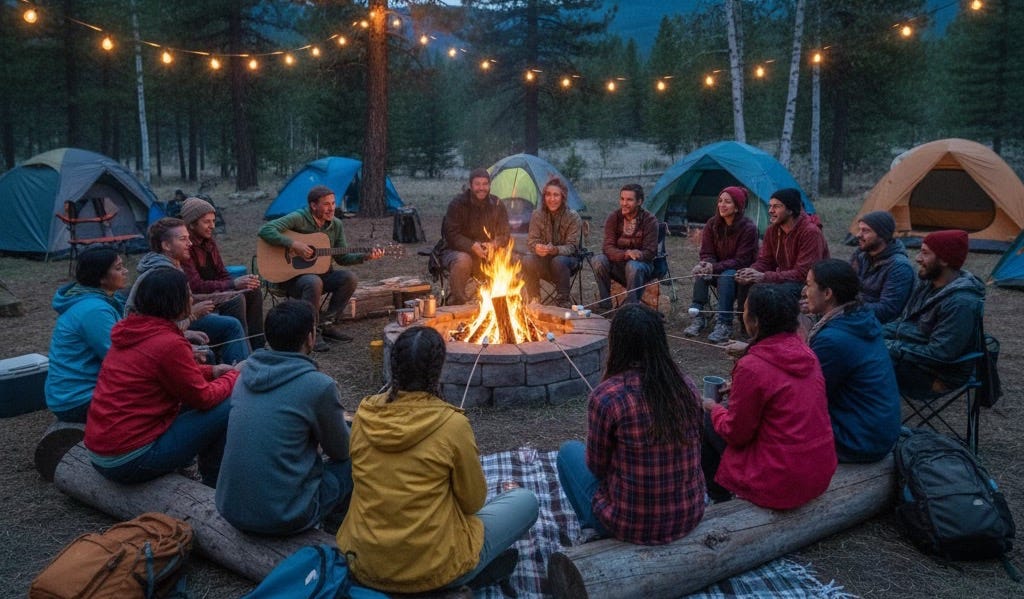The Village of "me's": When the counterfeit "me's" take control
In the struggle to "fit in", I find that presenting myself in a way that is acceptable allows me to experience acceptance. Even if I am fully aware that I'm being pretentious, I'm also aware of how to not stand out in a way that will get me kicked out of
The struggle to "fit in"
In the struggle to "fit in", I find that presenting myself in a way that is acceptable allows me to experience acceptance. Even if I am fully aware that I'm being pretentious, I'm also aware of how to not stand out in a way that will get me kicked out of the scenario. The need for the sense of connectedness that comes with being a group member makes me compromise my authenticity, and sometimes I sacrifice it to maintain my spot.
Sometimes I wouldn’t say I like going to parties; they make me nervous. You never know who you are going to meet and who you should be. It’s like an improv exercise that might come back to haunt you if you mess up. But parties are important events that offer us an opportunity to engage and connect with others. Relationships can be developed at parties, and new friends are made at parties. However, sometimes an awkward moment happens, and then a drama unfolds within me, leaving me conflicted.
This usually happens when the conversation turns to a topic I'm uncomfortable with. For example, when they start talking about politics, and I know I have a different opinion. I don't want to say anything, but I also don't want to be a hypocrite. I know that they're all waiting for me to say something. I stay silent, but I can feel the tension in the room. I take a deep breath and open my mouth, but before I can say anything, I hear a voice in my head. "Just play along," the voice says. "Don't rock the boat!" I hesitate for a moment, but then I nod. I agree with them, even though I don't really mean it. I just want to "fit in".
The conversation continues, and I start to feel more and more uncomfortable. I don't believe what I'm saying, but I'm too afraid to speak up for my self. I'm afraid of being rejected. I'm afraid of being an outcast. So, I keep my mouth shut and go along with it. I pretend to be someone I'm not. I become a counterfeit "me".
"Fitting in" is very important in a group setting, and the moment you stand out, it's either going to be as one that embodies the ideals that the group stands for or as an outcast that does not "fit in" this group.
There are about three classes in a group, mentor, member and outcast. The mentors are the leaders, the members are the ordinary participants, and the outcasts are those who failed to "fit in". In many ways, the mentors and the members subscribe to the ideology and the ways of being for this group. I can even say that they belong to this group. However, most of them don't belong; they "fit in". The outcasts have failed to "fit in" and are realising that this group is not for them. All those "fitting in" use their counterfeit "me's" to mimic how they belong to the group.
Let's go back to that party for a moment; the hosts are fully in tune with the event's agenda and are the mentors in this group. The hosts are directing the entire thing. However, the majority of the guests are merely "fitting in". Now, a good percentage of the guests will adapt to the event, get on with the agenda, and have a great time, but a certain percentage will fail to "fit in" and eventually will have to leave the party early. You have met these people at parties, or been one of them, the ones with an awkward vibe going on, saying things they don't mean and sticking out like a sore thumb for whatever reason.
Belonging
It's all the struggle to "fit in". However, there is a level above this, and we all know about it because we aspire to it. It's the level of belonging. Belonging means to be a part of something or have a rightful place or position. Belonging puts one in a relationship with that to which they belong and gives them ownership. To belong we need authenticity. Authenticity comes with a sense of truth, honesty, genuineness, integrity, reliability and confidence. These are all great attributes that we would love to experience in our lives. However, I find that my authentic "me's" don't get along with my counterfeit "me's". But I need both of the authentic "me's" and counterfeit "me's" because sometimes the situation forces me to use my counterfeit "me's". This happens when I am in situations for which my authentic "me's" are not developed to a level that gives me confidence in them. So, I find my self in a real dilemma having to decide to use a counterfeit "me".
Becoming counterfeit
In situations where I know what's at stake and have to "do what I have to do" for survival, I find that I willingly hand over full control to the counterfeit "me's" because I'm not willing to lose my position in the "fitting in" game, or the possessions I have acquired so far as I "fit in". So I surrender fully to the counterfeit "me's". This is how the counterfeit "me's" take control. I'm reminded of the movie Shutter Island, where the patients in a mental health asylum take over control and lock up all the carers. Everything looks fine on the outside, but there is an intense struggle on the inside between the carers (authentic "me's") and the patients (counterfeit "me's"). This is the same struggle I feel while in my dilemma, and the counterfeits are winning!
When the counterfeits take over control, one becomes subservient to the context in which they are. There's a loss of knowing internally. Because of this loss, a reliance on external facts and what the world is saying becomes the predominant way of knowing how to be. This is problematic because now we rely upon other sources and other people to monitor and validate our experience instead of relying upon ourselves. While this strategy is suitable for the purposes of "fitting in", it comes at the cost of our personal preferences. We identify with our personal preferences. When asked to describe ourselves, we will usually do so in terms of our personal preferences. "I'm the kind of person who likes to......" These personal preferences, when received, accepted and allowed to be, give us the sense of belonging. However, when not welcome, they force us to be inauthentic. Therefore, when our personal preferences are sacrificed, we lose our way of knowing how we feel about situations in which we are and consequently, we lose our opinion, which leads us to seek external validation.
Usually, we compare external opinions against our own and then develop a position, but in this case, we start to rely upon external opinions as our main compass. We start to do things because we have been told to and because it's what everyone else does. We are afraid of the consequences of doing otherwise. We lose our agency and become followers living vicariously. This stunts our transcendental growth, and we remain stuck at that level of personal development.
While stuck there, when confronted by a challenge, we are prone to superstitious interpretation. We then start to blame and complain. We blame the government, our culture, those who advised us, our friends, our bosses, the weather, our families, misfortune, God, etc. We become blind to our participation and fail to see how we can influence the situation. We lose our ability to respond to the context. We start to believe that the world is broken and needs fixing. And that if the world gets fixed, then we will be alright, and everything will work in a way that does not challenge us because these challenges make us suffer, and suffering can be painful and stressful and exposes us to all the ways in which we are less than what we wish to be.
However, this superstitious interpretation only exacerbates our disconnection from our internal authentic selves and leaves us with grand expectations based on false assumptions. This is not helpful because it exponentially puts us out of touch with what's happening around us and how the world works. We start to show up in inappropriate ways with whatever we are participating in. Consequently, this inappropriateness becomes repulsive even for those who could have cared enough to help us snap out of this "night of the dark soul" moment. We are left to revel in this cesspool of suffering that is stuck in a feedback loop continually reinforcing it. I think this is a glimpse of what is described as the "valley of the shadow of death" in Psalms 23:4.
To overcome this predicament, we must reconnect with our authenticity and reclaim our agency. This requires embracing our personal preferences, honouring our opinions, and trusting our internal compass before we get to the "valley of the shadow of death". By so doing, we can transcend the "fitting in" game and cultivate a genuine sense of belonging through serious participation. We can navigate social situations without compromising our authentic selves. This will enable us to build more meaningful connections both internally and externally. Thank you for your time and attention.



